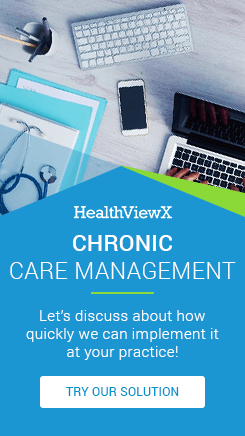A medical Referral Management System is essential for a health system or clinic which sends and receives patient referrals to other care providers. Using a referral management system helps to track and grow referral sources. Before deciding on a referral management system for your practice, there are various factors you should consider.
Following are 11 questions to address before choosing your referral management system
1. Is the system easy to adopt?
By choosing a referral management system that your staff and you can adapt easily, you can avoid wasting time on installation and implementation. Cloud-based referral software is recommended as it does not need any installation and a single sign up can get you started.
2. Is the system easy to navigate?
However comprehensive a referral management system may be, it must be easy to navigate through. For non-technical clinicians, nurses, administrative staff at a hospital the system must be easy to comprehend and use even from the first instance. A simple workflow of the system helps save time not wondering what is the next required action.
3. Is the system expensive?
Various budgets suit various practices depending on the conditions treated, size of the referral network, number of referrals received and sent each month, number of employees who need to use the system etc. It is recommended that you pick a system within your budget with the necessary features so it can add value by optimizing the referral process and not be a financial burden on your practice.
4. Is the system scalable?
As your practice grows by volume of patients, a number of locations, referral network or a number of conditions treated, a referral management system should allow you to scale up or down based on the requirement. If your staff is overlooking 100 referrals per month now, you should be able to upsize ( increase by 10%, 50 %, double, triple or more!) your referral pipeline based on the requirement or downsize based on seasonality.
5. Does the system allow user hierarchy and access control?
A referral system can store different types of data like patient medical records, patient schedules, billing, insurance details, list of specialists referred to, dashboard overview, referral pipeline, referral status etc. Not all this information needs to be accessed by every employee of the practice. The admin team would need to view the patient pipeline, clinicians would need access to patient medical records and referral status, finance team would need access to billing and insurance details, management would need admin access to the dashboards to monitor overall performance and reports. Having a system with user hierarchy allows for boundaries to be maintained between data modules to ensure patient privacy and data security.
6. Can the system process multi-channel referrals?
A clinical practice with a good referral network receives referrals from multiple channels like phone, email, fax, chat, SMS etc. A missed referral is a missed opportunity for potential revenue of hundreds of dollars. An efficient referral management system must be able to collate all the referrals automatically with minimal manual intervention. A referral pipeline that shows a comprehensive list including all referral sources will help the practice track and grow referrals. A dashboard view of referral network indicating the performance of each referral source allows for analytics on revenue split based on referral source, a number of referrals from each source etc.
7. Does the system allow you to view detailed patient profile?
While diagnosing a patient, all medical history of that patient must be visible for accurate diagnosis and treatment. A comprehensive view of the patient profile helps consider details of other related ailments diagnosed earlier, prevent repeat tests from being prescribed, prevent unnecessary costs to the patient, suggest a more accurate specific specialist for referral based on patient’s current condition and medical history. Each action by a specialist against a referral should be recorded in a chronological order for documentation and future reference. A complete patient profile allows for faster and more accurate diagnosis.
8. Does the system allow easy secure access to patient records?
An effective referral system must store patient demographic and medical information securely for immediate access on any internet-enabled device. HIPAA compliance and data security must be maintained. Relevant information can be targeted to the treating clinician.
9. Can medical records be shared among relevant clinicians?
Lack of proper communication channels create problems in the referral process. This leads to specialists not having access to required records and test results on time. The physical transfer of files put the patient protected information at risk of being misplaced, lost or compromised. The system should have the flexibility to restrict sensitive information. A good referral management system must allow PCPs to share patient documents securely and quickly.
10. Can you track what happened to your referral after you sent it?
Referring providers mostly do not know what happened to a referral they sent. After the referral is sent the PCP is out of touch with the rest of the process and this can have serious repercussions like inappropriate re-referrals, inefficient care or lack of time-bound care, patient dissatisfaction, and even malpractice lawsuits.
11. Does the system ease communication?
A referral system must keep the PCP always in the loop by providing information on the status of referral sent and a secure channel to share notes and documents. A referral system must enable convenient communication between the primary care provider, specialist and other clinicians involved in the patient diagnosis. With effective communication, quick resolutions of queries are possible enabling optimal care orchestration.
If you are looking for an effective medical referral management system, consider a 30-minute walkthrough with the HealthViewX team. Our specialists will guide you through the HIPAA compliant industry-leading features with user-centric modern design.








